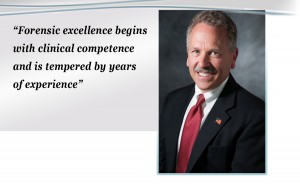■ How Do I Socialize without Drinking?

Social drinking is a huge part of our culture. Alcohol is available everywhere, from bars and restaurants to people’s homes. It’s a popular way to socialize, relax and even celebrate special occasions.
A common question I hear from young professionals is “How do I socialize without drinking?” Many people tell me that there is an expectation to drink with a boss or a senior partner. The expectation could also arise from peer pressure or from social anxiety. Understand that drinking is a personal choice.
First, decide if the event is one you want or need to attend. Avoiding these events is an acceptable coping mechanism. Suggest non-alcohol, relationship-building activities with colleagues or peers such as dancing, movies, music, art galleries, or exercise. Feel empowered to make suggestions that do not involve alcohol.
Also remember that the case for not drinking, especially in professional social settings, is compelling. Behaviors that were normal in law school may cease to be normal as you establish a reputation as a professional. I am not suggesting that abstinence is some paramount virtue, but neither is wondering if you said the wrong thing to the wrong person the morning after a bar association event or office party. If you are thinking about reducing or eliminating drinking, you are not alone. Twenty-seven to thirty percent of Americans ages eighteen to forty are abstinent.
Being prepared is the best way to deal with social situations where you know alcohol will be served. If you don’t want to drink, make that decision before you venture out. Have your answer ready when someone asks you what you will have at the event—“I’m going to start with water tonight” or “I don’t drink during the week.” You don’t owe anyone an explanation as to why you aren’t drinking, and I advise against sharing. Most people won’t notice whether or not you are drinking; those who push you to drink may have their own issues. If someone is pushing you too hard to drink, point out that you have to drive home and a DUI would mean charges from the ethics board. “I really value my license and do all the right things to make sure I keep it (and my record clean)” is a line to memorize. Or, “I find drinking affects my performance at work the next day, and I don’t want to do anything that would affect my productivity at the firm.”

Neil S. Kaye M.D. is an active clinician and expert witness. As a specialist in Forensic Psychiatry, his testimony has had a major impact in high profile cases.
Try volunteering in advance to be a designated driver. Your friends will appreciate the safety net, and many bars will comp the designated driver “mocktails” all night. Tell your bartender that you are not drinking and tip well—he or she will take good care of you.
The first part of a social meet-up is always the hardest part, so if you have some social anxiety and are accustomed to using alcohol to lubricate the wheels, arrive a little later. Others will already be slightly disinhibited, and you may find it easier to make conversation. You could try to meet up with other people who also are planning not to drink. Once these connections are made, friendships will develop, and you will build a supportive network for future events.
Finally, celebrate your abstinence after the fact. The next morning, as you awaken rested and without a hangover, enjoy the extra energy, muse over what you witnessed, and splurge on that grande caramel frappuccino. You can afford it with all the money you saved by not drinking the night before!